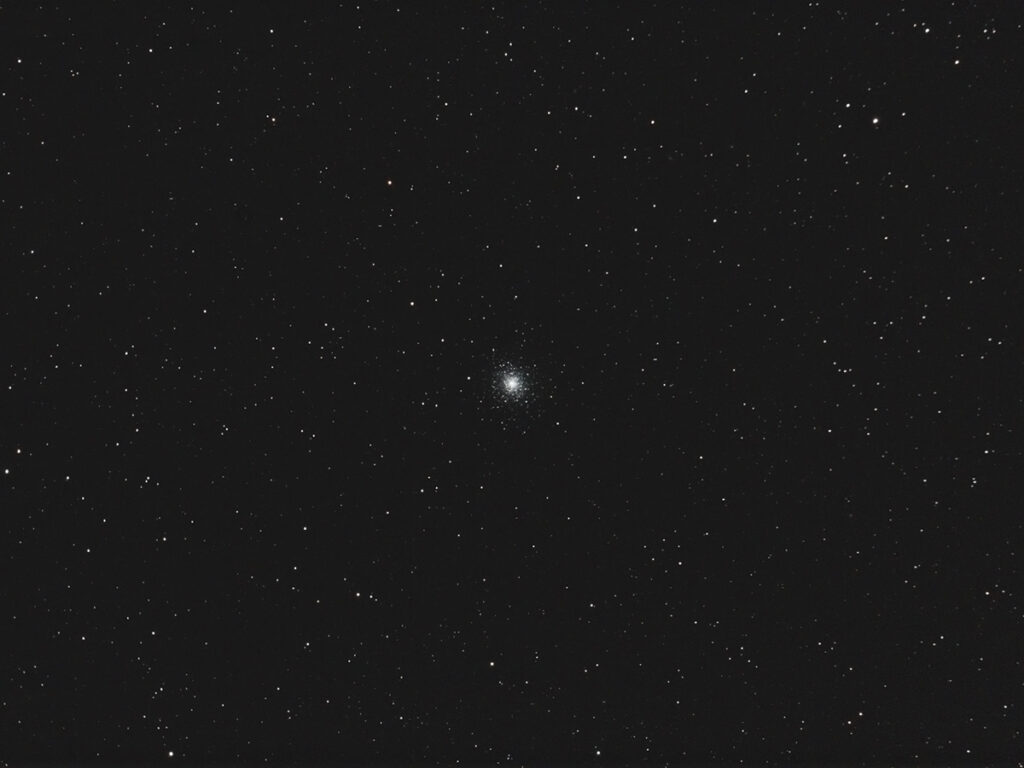
Telescope: ES Comet Hunter MN6 at f/4.8, Orion Atlas EQ-G
Camera: Baader modified Nikon 610
Filter: 2” Orion Imaging Skyglow Filter
Guide scope: Williams Optics 50mm, ASI290MM mini, PHD
Exposure: 36x60sec, ISO 400, saved as RAW
Darks: Internal (Long Exposure Noise Reduction On)
Flats: 32×1/50sec, tee shirt flats taken at dusk
Average Light Pollution: Red zone, Bortle 8, poor transparency
Lensed Sky Quality Meter: 18.4 mag/arc-sec^2
Stacking: Mean with a 2-sigma clip.
White Balance: Nebulosity Automatic
Software: Backyard Nikon, Nebulosity, Deep Sky Stacker, Photoshop
M92 is the ‘other’ globular cluster in Hercules. M92 lies to the northeast of the popular M13 globular cluster in a relatively lonely patch of sky making it a bit harder to locate, but well worth the effort. Interestingly, M92 is listed as being fainter than M13 (Mv 6.4 for M92 vs. 5.8 for M13), but I find the core of M92 to be a tad brighter than M13. This is likely the result the apparent size of M13 being larger than M92 giving M13 a higher total integrated brightness.
M92 currently rises in the northeast late in the evening and is high overhead at dawn.
Recent Comments